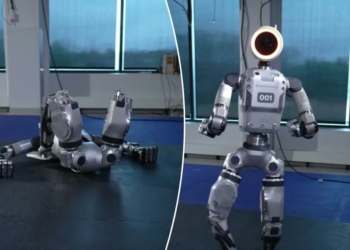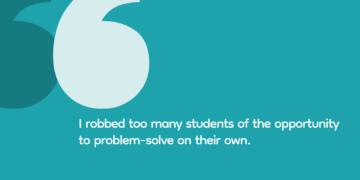More than 2.5 million Americans have a chronic condition arising in early childhood that can negatively impact their education, job performance and employability well into adulthood.
There is no known cure, and existing treatments are often minimally effective. Yet for those with persistent, developmental stuttering, there is new hope, thanks to groundbreaking research led by scientists at Vanderbilt University Medical Center in Nashville, Tennessee, and Wayne State University in Detroit, Michigan.
In two papers published this week, Jennifer “Piper” Below, PhD, and Shelly Jo Kraft, PhD, describe a “genetic architecture” for developmental stuttering and report the discovery of new genetic variations associated with the condition.
The researchers said that these findings, which were published in The American Journal of Human Genetics and Human Genetics and Genomics Advances, and studies like them have the potential to identify therapeutic directions that could improve outcomes for people who stutter.
“It’s clear that in populations, stuttering is polygenic, meaning that there are multiple different genetic factors contributing to and protecting people from risk,” said Below, associate professor of Medicine at VUMC. “That was something that had not been clearly shown before these studies.”
The new revelations will have a huge impact on people who stutter and on the parents of children affected by the condition, predicted Kraft, associate professor of Communication Sciences and Disorders and director of the Behavior, Speech & Genetics Lab at Wayne State University.
“It’s a piece of themselves that they can then understand,” she said, “instead of living a lifetime of experiencing this difference in their speech and never knowing why.”
With the help of colleagues in Ireland, England, Israel, Sweden, Australia and throughout the United States, Kraft has collected blood and saliva samples for genetic studies from more than 1,800 people who stutter, including more than 250 families with three generations of stuttering.
But while that effort, called the International Stuttering Project (www.theinternationalstutteringproject.com), identified new genetic variations, or variants, associated with developmental stuttering, it was not sufficiently “powered” to reveal the complexity of the condition. There simply were not enough people in the studies.
That’s where Below comes in. She utilized a key VUMC resource, BioVU, one of the world’s largest repositories of human DNA linked to searchable, electronic health information. BioVU has enabled researchers to conduct GWAS, or genome-wide association studies to probe the genetic underpinnings of a wide range of diseases.
Stuttering, however, is a condition that is rarely mentioned or given a diagnostic code in the medical record. People aren’t hospitalized for stuttering. “We had to come up with some clever new ways to try to capture that missing code,” Below said.
From confirmed cases of developmental stuttering, the researchers constructed a “constellation” of diagnostic codes for other conditions such as attention-deficit hyperactivity disorder (ADHD) and autoimmune reactions to infections that co-occur with stuttering more frequently than would be expected by chance.
Then, using machine learning techniques, they created an artificial intelligence tool that used the presence of these “phenotypes” recorded in the electronic health record to predict those who were likely to stutter, “even in the absence of having a direct note about their stuttering in their medical record,” Below said.
Supported by $3.5 million, five-year grant awarded in 2018 by the National Institute on Deafness and Other Communication Disorders, part of the National Institutes of Health, the researchers demonstrated that their stuttering prediction model positively predicted the presence of stuttering more than 80% of the time.
The research also turned up a stuttering-related gene implicated in autism-spectrum disorder, as well as genetic variants that affect the regulation of sex hormones. The latter finding may help explain why boys are more likely to stutter, and why women who stutter are more likely to recover.
Some correlations between traits may be spurious, Below noted. But if the researchers establish genetic connections between stuttering and other traits such as ADHD, those findings could open up avenues for treating both conditions at the same time, Kraft said.
Researchers from private speech clinics in Dublin, Ireland, Curtin University in Perth, Australia, and the University of North Carolina at Chapel Hill contributed to the research. The National Stuttering Association, Irish Stammering Association and other organizations have supported the research by sponsoring collections.
VUMC co-authors were Hannah Polikowsky, Douglas Shaw, Dillon Pruett, Hung-Hsin Chen, PhD, MS, Lauren Petty, and Robin Jones, PhD, associate professor of Hearing and Speech Sciences. Co-authors from Curtin University included Janet Beilby, PhD, and Kathryn Viljoen.















